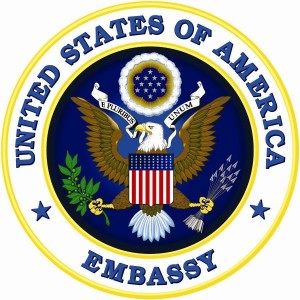The United States has said it may extend its visa restrictions to the family members of individuals, especially politicians, believed to have undermined democracy in Nigeria during the 2019 general elections.
The US also said the visas issued to politicians and others affected by the restriction had been revoked by the Department of State.
The US Department of State had, in a statement, on Tuesday, announced visa restrictions as consequences for persons believed to be responsible for election-related violence and rights abuses before, during and after the 2019 polls.
It said the decision reflected its commitment to working with the Nigerian government to end corruption, strengthen democracy, accountability and respect for human rights.
READ ALSO: My relationship with Gov. Yahaya Bello not smooth, says Kogi dep. gov.
However, the US Department of State in response to Saturday PUNCH’s enquiries on Friday said the restrictions would also affect family members of such individuals “when warranted.”
The statement read in part, “Any individual named in this policy who already has a visa to travel to the US will be informed that it has been revoked.
Any individual named in this policy who applies for a visa to travel to the United States will be denied one.
“These restrictions may, when warranted, also affect the family members of those individuals subject to visa restrictions under this policy.”
It added that while the identities of those who would be affected by the policy could not be revealed in line with US law making visa records confidential, it meant that such individuals were not welcome in the US.
The statement, which was emailed by Nicole Thompson of the State Department Press Office, further read, “Under US law, individual visa records are confidential and we cannot provide details as to who is or will be affected.
“The policy covers those believed to be responsible for or complicit in, undermining democracy, including those responsible for or complicity in the rigging of the electoral process; corruption; vote-buying; intimidation of voters, the media or election observers through threats or acts of physical violence; suppression of peaceful protestors; and threats against judicial independence.
With these restrictions, we are sending a clear message that those who undermine democracy or violate or abuse human rights – and their families – are not welcome in the United States.”


